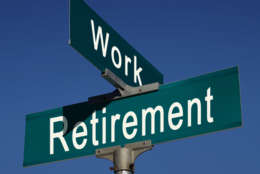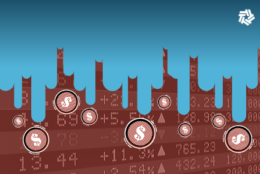Federal Report
-
Here are a few encouraging takeaways for the federal workforce after the end of a strenuous year.
January 01, 2021 -
President Trump has had, to say the least, a rocky relationship with the federal community. But after the dust settles, will feds end up being better off?
December 31, 2020 -
If you are even THINKING about retiring next year, you’ve got some homework to do.
December 30, 2020 -
The disappointments associated with federal workers' lower pay raises this year pale in comparison to the challenges that many in the private sector are wrestling with.
December 29, 2020 -
Congress introduced, debated and passed a $2.3 trillion spending and COVID-19 relief package into law in less than 24 hours. Federal employee groups say lawmakers left out an important provision in the frenzy.
December 25, 2020 -
My wish list of terms to let go of as what's got to be an improved year comes in
December 25, 2020 -
Here’s the choice: Money or quality of life. Maybe not much of a choice if getting a smaller salary in return for a less hectic environment would actually be stressful. Whatever, work-at-home feds may soon…
December 24, 2020 -
The start of a new year, any new year, is a logical time to take stock, reflect and look ahead. The fact that we are the midst of a deadly, frightening pandemic this time around makes self-reflection all the more important.
December 23, 2020 -
When they leave government, either for other jobs or to retire, more than half of all TSP investors take some, most take all, of their money with them. How come?
December 22, 2020 -
Federal employees were in the spotlight for much of the Trump administration. The drama was stressful at times, but perhaps it shed more light on what federal employees do and where they work.
December 21, 2020 -
As new leadership arrives at the State and Commerce Departments, and the intelligence community, let’s hope they give real attention to weird and disturbing threats to certain career employees.
December 18, 2020 -
Like clockwork, whenever the first chance of snow threatens the D.C. area, the locals panic. Almost always, everything is fine. But that won't stop us from panicking again the next time.
December 17, 2020 -
With a year full of unprecedented change for the workforce in the private and public sector, next year could bring in a wave of both retirements and new opportunities.
December 16, 2020 -
When you retire, do you stick with the TSP (and its low-fees and multiple-oversight) or move into another tax-deferred investment option? That’s an important question because so many feds typically retire in December and January.
December 15, 2020 -
Career choices, promotion opportunities and workplace flexibilities may explain why, on average, women in the federal workplace make 7% less than their male colleagues, according to the Government Accountability Office.
December 14, 2020















